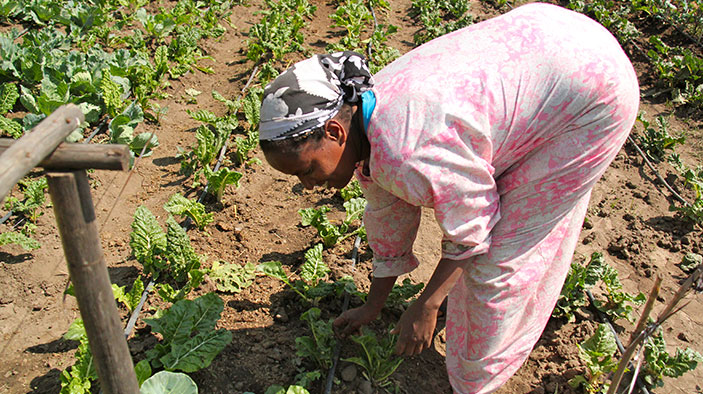East and Southern Africa—FoodTrade ESA
Client: Foreign, Commonwealth & Development Office
Duration: 2013-2018
Region: Sub-Saharan Africa
Country: Regional
Solutions: Economic Growth
From 2013 to 2018, FoodTrade worked at improving the functioning of national and regional staple food market systems for beans, maize, rice, and soybeans—crops that are critical for low-income consumers and smallholder farmers—across nine countries in East Africa.
FoodTrade ESA improved the national and regional staple food market systems, reaching 554,363 farmers with access to new or improved storage and aggregation systems; 186,076 farmers accessing improved market information systems; and 452,380 accessing improved value chain coordination. The program worked to enable private sector to invest and develop regional staple markets, benefiting farmers and consumers.
Through two facilitative tools—a Challenge Fund and Development Fund—the program fostered catalytic and innovative solutions.

Sample Activities
- Work with national governments and regional bodies to enact favorable policies that foster regional trade in staples.
- Leverage economic gains facilitated by the program to attract public-private partnership investments to improve infrastructure and transport.
- Create storage mechanisms to enable farmers to better store their food crops and sell when the seasonal prices have risen.
- Creating a staple food knowledge hub that will allow users to share and exchange knowledge and resources.
Select Results
- Assisted 250,000 farmers in accessing national and cross-border value chains, allowing them to sell more than 60,000 metric tonnes of staple foods across the region in 2016 alone.
- Stimulated £17,455,463 in private sector investment in regional staple food value chains to date. Challenge Fund grantees contribute at least 51 percent of the total project budgets.
- Enhanced value chain coordination for 452,380 farmers by applying grades and standards for products, improving logistics, and developing a virtual marketplace.
- Provided improved agricultural inputs to 237,530 farmers to increase quality and quantity of harvests.
- Connected 186,076 farmers to improved market information systems through FoodTrade interventions.
- Collaborated with regional partners to develop strategies for addressing 31 regulatory and policy challenges that hinder trade.
- Held 19 public-private dialogue platforms to address cross-border trade in the East and Southern African region.
- Increased farm gate prices by 21 percent and increased volumes traded by FoodTrade farmers by 40 percent, despite the spread of the Fall Army Worm and the 2015-2016 drought.
RELATED CONTENT:
Cambodia—Development Innovations
The Development Innovations project connected Cambodia’s civil society and technology communities to design and use information and communication technology solutions to address development challenges.
Read More